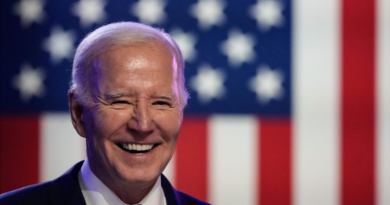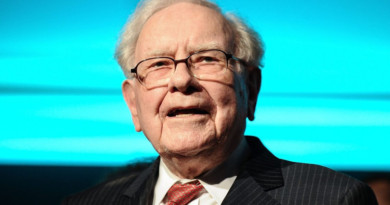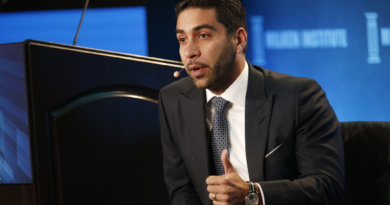Zuckerberg seeks ‘active role’ in Trump administration tech talks
Good morning. Our current geopolitical tensions have finally reached one of James Bond’s go-to bottles.
An August ransomware attack on the Stoli Group, which makes the Soviet-born vodka once known as Stolichnaya, disabled several internal systems and helped push its U.S. subsidiaries into bankruptcy. (No financial data, no repaying debts. No repaying debts…)
The company, which changed its name in 2022 to protest Russia’s invasion of Ukraine, doesn’t expect to be back online until early next year. As 007 says in A View to a Kill: “Vodka, rather shaken. And one microchip.” —Andrew Nusca
Want to send thoughts or suggestions to Data Sheet? Drop a line here.
Zuckerberg seeks ‘active role’ in Trump administration tech talks

Meta is working hard to please Donald Trump before he returns to the White House.
In a recent briefing with journalists, the company’s top policy executive, Nick Clegg, said CEO Mark Zuckerberg desires “an active role in the debates that any administration needs to have about maintaining America’s leadership in the technological sphere.”
Clegg—Britain’s former deputy prime minister—also said Meta “overdid it a bit” when moderating pandemic-related content on its media platforms, which include Facebook, Instagram, and Threads. Trump has repeatedly accused the company and its social media peers of anti-conservative censorship, despite evidence to the contrary.
This isn’t Meta’s first time ingratiating itself with Trump. After the company became a political target in 2020, Zuckerberg told Fox News that “Facebook shouldn’t be the arbiter of truth of everything that people say online.”
Why such a tone shift from the years when Meta was dragged through Congressional hearings about rampant misinformation on its platforms? Because it beats being a presidential punching bag.
As Clegg told Axios last year in the wake of reinstating Trump after a two-year suspension on its services: “It’s not great for business to be, you know, dragged into and embroiled in controversy.”
Tesla made ‘fatal flaws’ in legal argument for Elon Musk’s pay package
A renewed push to award Tesla CEO Elon Musk a pay package now valued at $100 billion was shut down by a judge this week.
Tesla had tried to reverse a previous ruling to scrap Musk’s pay. After losing at trial, the company held a new stockholder say-on-pay vote in a bid to invalidate the court decision and pay Musk what the Tesla board said it rightly owed him; nearly 3 in 4 shareholders were in favor.
The court was not, however. Tesla’s arguments were “creative” but unpersuasive, Delaware Court Chancellor Kathaleen McCormick wrote in a 101-page decision, with “at least four fatal flaws.” (Tesla says it will appeal.)
The flaws: Tesla had no grounds to flip the outcome of a court decision based on evidence it created after the trial took place; Tesla can’t raise a common-law ratification defense after an opinion to rescind Musk’s pay package came post-trial; Tesla failed to adhere to the established legal framework for securing stockholder ratification for Musk’s pay; and Tesla made multiple materially misleading or inaccurate statements to investors.
Each of the flaws were enough to trounce the motion, McCormick wrote, but “taken together, they pack a powerful punch.” —Amanda Gerut
David Ellison preps for sweeping Paramount changes
More details are emerging about what will happen at the combined Skydance Media and Paramount Global once their merger closes next year.
David Ellison, the 41-year-old son of Oracle cofounder Larry who will become Paramount’s CEO, is reportedly planning “sweeping changes” that include a management reorganization, TV network cuts and consolidation, and streaming investments.
Paramount presently has three co-CEOs: George Cheeks, Chris McCarthy, and Brian Robbins; the last two are expected to exit.
Paramount makes most of its profits from cable networks Comedy Central, MTV, and Nickelodeon, but they are in secular decline. The iconic film studio that gives the corporate parent its name is said to be unprofitable.
Ellison has previously said he won’t sell Paramount Pictures or broadcast jewel CBS. He is, however, reportedly open to selling some of the company’s top-tier real estate in Los Angeles and New York City.
He’s also reportedly interested in taking dramatic steps to shore up the Paramount+ streaming service, including a deeper integration with Paramount-owned Pluto and partnerships with rivals Peacock and Max.
The deal is expected to close in late March or early April and still requires FCC approval because it involves the transfer of broadcast licenses.
TikTok takes down pro-Russian influencer network in Romania
TikTok has removed a network of accounts that secretly campaigned for Calin Georgescu, a candidate who came from nowhere to win the first round of Romania’s recent presidential election.
Georgescu’s early victory (he still needs to face off against liberal Elena Lasconi in the second round on Sunday) was a massive upset—he’s a far-right, anti-NATO conspiracy theorist and a big fan of Vladimir Putin and Donald Trump.
Many suspected that Moscow had something to do with the surge of views that the independent’s TikTok videos got in the run-up to the initial poll—52 million views in four days, which is impressive in a country of 19 million.
TikTok swore Georgescu hadn’t received any special treatment, but EU lawmakers were still furious and on Tuesday the company said it had nuked two clusters of accounts that had drummed up support for him.
“It’s essential that we have an authentic experience on the platform,” said TikTok transparency chief Brie Pegum. “We take it very seriously.” —David Meyer
China bans export to U.S. of critical minerals used in tech
China on Tuesday banned, with immediate effect, exports of the critical minerals gallium, germanium, and antimony to the United States.
Gallium and germanium are used in semiconductors; the latter is also used in infrared tech, fiber optic cables, and solar cells. Antimony is used in bullets, missiles, night vision goggles, and nuclear weapons.
The directive also requires a stricter review of how graphite, another export with major use in electric batteries, is used in the U.S.
The move was not unexpected. Beijing, a global leader in the export of these minerals, began rolling out restrictions on mineral exports last year for national security concerns. The latest enforcement measures are strictly limited to the U.S. market and a clear escalation of trade tensions before President-elect Donald Trump returns to the White House.
There are concerns that China could go further and restrict the export of nickel or cobalt, which are both major components of the rechargeable batteries found in electronic devices; such a move could prompt prices to spike and many countries beyond the U.S. to search for their own supplies.
More data
—Who will be Intel’s next CEO? Lip-Bu Tan of Cadence Design, Matt Murphy of Marvell in the mix.
—Walmart completes $2.3bn Vizio acquisition. Coming soon: A bigger ad business.
—Meta chases nuclear power deals. It published a fresh RFP in pursuit of 1 to 4 gigawatts.
—Salesforce Q3 revenue tops estimates at $9.44bn. It also brightened its Q4 outlook.
—China’s generative AI users reach 230 million. Baidu’s Ernie Bot leads the pack.





